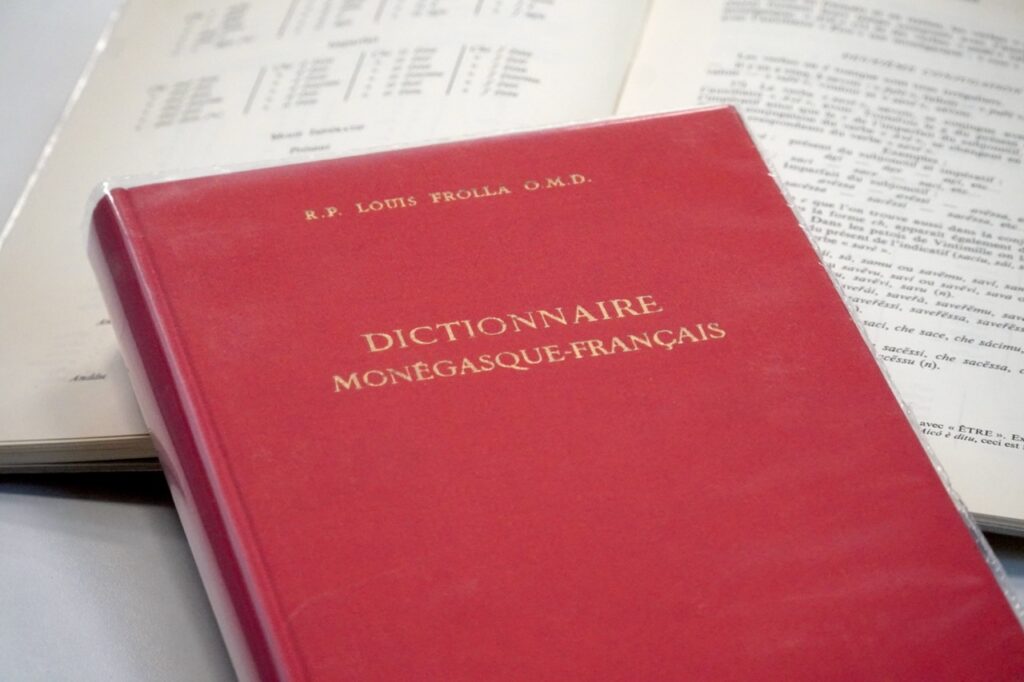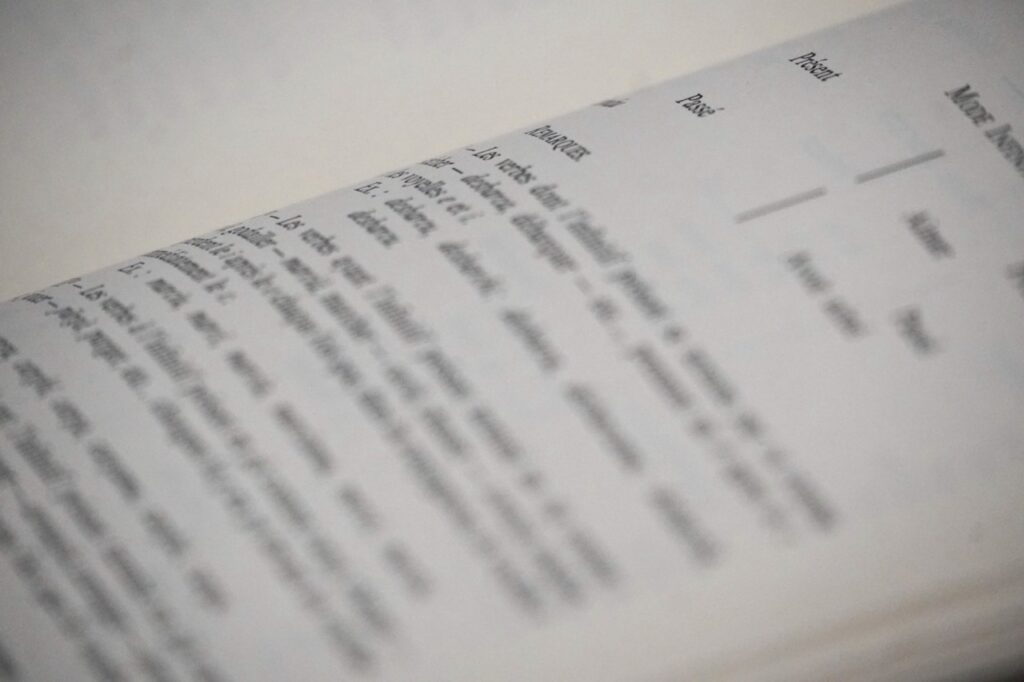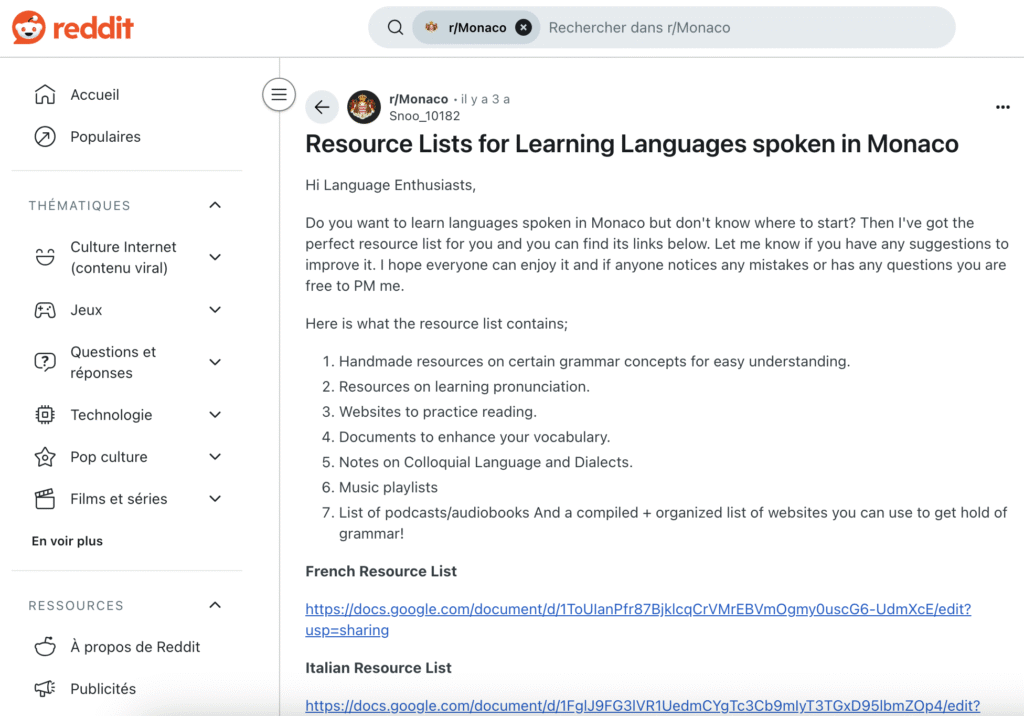Learn Monegasque: a practical guide to studying the Principality’s language

Monégasque — or munegascu — is an integral part of Monaco’s cultural heritage. For those wishing to begin or improve their learning, here is a practical guide bringing together the main resources available in 2025.
“What resources can I find to learn Monegasque?” asked Lucien, one of our readers across the Atlantic, an English speaker clearly eager to pick up the traditional language inherited from Ligurian and Mediterranean history. While daily use remains limited, Monaco is making significant efforts to ensure its transmission. This summer, the Monaco Tribune editorial team did its homework and now brings you the best ways to go about learning.
1. In Monaco: courses and local initiatives
At school: lessons and a competition
Monegasque pupils study the language from primary school until Year 10 (3ème). From Year 11 onwards it becomes an optional subject, helping students to familiarise themselves with Monaco’s history and culture. A Monegasque language competition, organised since 1981 by the Town Hall, the Department of Education, Youth and Sport (DENJS) and the National Committee for Monegasque Traditions, puts pupils to the test every year. Written exams take place in May, followed by orals in June, before an official prize-giving ceremony in the presence of Prince Albert II. “It’s an important moment to promote the language to younger generations, but also to families who often help them revise,” explained Isabelle Albanese, coordinator of Monegasque teachers.
Free courses for adults
Every year, the National Committee for Monegasque Traditions, together with the Academy of Dialectal Languages, offers free Monegasque classes for adults. Beginners and advanced learners alike can register in October after an introductory meeting. The sessions are held at the Academy of Dialectal Languages (18 avenue des Castelans) and are taught by teachers linked to the DENJS.
Printed cultural resources
On the publication side, several tools exist, most of which are available at Monaco’s public library (closed from 20 September to 11 December 2025):
Canticu a Santa Devota (The Legend of Saint Devota) by Louis Notari – the first work in Monégasque, published in 1927
- Grammaire monégasque by Louis Frolla (1960)
- Dictionnaire français–monégasque by Louis Barral (1983)
Anthologie de la littérature et de l’usage écrit du monégasque by Stefano Lusito (2023)
- U Libru d’i aujeli (The Book of Birds), Louis Notari Collection / presented by Claude Passet with an essay by Bernard Notari (2025), edited by Stefano Lusito – a collection of poetry in Monegasque
- The annual calendar in Monegasque, featuring a selection of texts with French translations, often dedicated to a Monegasque personality or highlighting a cultural or historical theme
2. Abroad: events and self-study
“Abroad, there is currently no formal structure for teaching Monegasque,” explained Jean-Philippe Vinci, Director of Education, Youth and Sport, ahead of the 2025–2026 school year. However, certain university conferences and events in Italy, particularly in Liguria, provide opportunities to attend talks on neighbouring dialects and to immerse in the local culture. The Academy of Dialectal Languages regularly collaborates with institutions in Varazze and Genoa, and participates in comparative projects with French schools. “We’ve worked with pupils on joint projects with a Catalan school in Perpignan and with an Occitan school in Orange. We have also taken part in seminars on dialects and their teaching,” added Isabelle Albanese.
Distance learning
For enthusiasts living outside the Principality, learning mostly relies on self-study, using digital resources or making direct contacts. Since no foreign institution provides Monegasque courses, those interested can contact embassies, which may connect them with teachers offering private lessons.

3. Digital and informal alternatives
Although still limited, several options exist for learners far from Monaco:
- The National Committee for Monegasque Traditions website compiles resources and provides the Monegasque alphabet typeface for download.
Amateur sites: some unofficial pages also provide vocabulary, such as munegascu.free.fr.
- Language exchanges: certain specialised apps make it possible to find speakers willing to share their knowledge.
- Online communities: forums and social networks are entry points for asking questions, sharing documents or meeting other enthusiasts. YouTube also has some Monegasque language-learning channels and content.
These tools do not replace structured teaching, but they provide a useful first immersion into the sounds and particularities of Monegasque.

4. Where to find more information?
The website of the National Committee for Monegasque Traditions gathers a wide range of resources: dictionaries, educational material, details of courses and cultural events. The Academy of Dialectal Languages also regularly publishes books and organises specialist seminars.
Anyone wishing to begin learning should turn to these institutions first of all, given their central role in preserving the Principality’s language.







